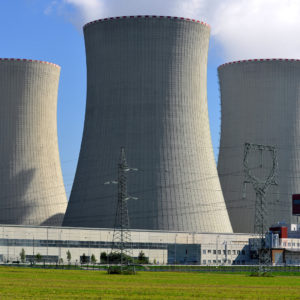In a small ceremony at the end of September, representatives of the Chinese, British, and French governments gave final approval to the Hinkley Point nuclear plant in the U.K. Unfortunately, it doesn’t look like British energy companies won their plea to show the cost of the approximately $27-billion-dollars in subsidies on consumers’ energy bills. The companies are rightly arguing they should not be blamed for a costly decision they didn’t make. The entire Hinkley episode provides insight into how interest groups influence government to make decisions that benefit themselves, and rarely consumers.
Electricity produced at Hinkley is guaranteed a rate of at least 92.5 pounds per megawatt hour for 35 years, the source of the $27-billion-dollar subsidy over the lifetime of the project. Of course, adjustments for inflation are baked into the deal to ensure that EDF, the French utility building the plant, makes a profit.
The guaranteed rate is astonishingly high compared to other electricity sources, ranging from more than twice to as much as three times the current market rate depending on the estimates.
Of course, this means British energy consumers will pay more to heat their homes, cook their food, and wash their clothes. Simply meeting basic needs will become more expensive. But the problems do not stop there. Electricity is an input into nearly every product, meaning higher energy prices will have less than positive ripple effects across the rest of the UK’s economy.
People sometimes point to direct corruption or influence to explain these sorts of arrangements, and in fact, some attributed the Hinkley Nuclear Plant’s deal to Theresa May’s husband’s holdings in a company that stands to gain from the Hinkley deal. Despite these claims, influence is rarely bought in such a crass way. A far more likely cause is the interrelated web of business and government that has developed. In the case of the Hinkley Plant, a nuclear energy group, facilitated by the connections between government and industry, was able to convince government that it should provide energy. Government chose a winner, EDF, and anointed British taxpayers the losers in the form of higher energy prices.
Projections place Hinkley’s cost per household over the 35 years of the deal between 150 to 660 pounds, about $190 to $850. It should not be any wonder why the existing energy companies want to be able to point to the reason they are raising prices. In the energy market, the UK is creating by interfering with normal supply and demand, the companies don’t want to be punished for pushing the costs of EDF’s political maneuvering onto their consumers.
In an ideal world, we might hope that government acts in the best interests of those it governs, but the world we live in is anything but ideal. Instead, government responds to special interests by concentrating the benefits of government programs in the hands of a few while spreading the costs across all citizens.
Special interests get the benefits while everyone else pays. These arrangements persist because those who do pay are individually only paying small amounts, but those who receive the benefits collect large sums. Lobbying government to eliminate the special interest program would cost each taxpayer far more than simply conceding to the higher costs.
These realities mean that those who want programs organize to fight for them. Those who pay recognize organizing to oppose the program would cost far more than simply paying. Mancur Olson, an economist interested in explaining how and why groups organize, explored this process and the impacts of these arrangements in his seminal book, “The Logic of Collective Action.”
Fundamentally, Hinkley should be seen for what it is: a case study in how special interests appropriate government’s power for their own ends. It shows how government involvement in the energy market, by granting favors to the politically connected, makes consumers worse off. Lessons from incidents like Hinkley suggest that naïvely trusting government to do what is best for everyone is a recipe for benefiting a few at the expense of the rest.

